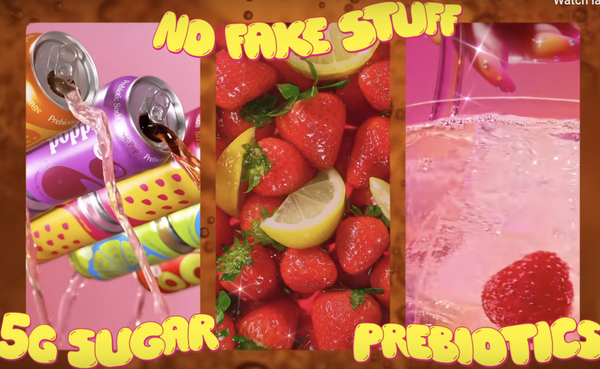:

A lawsuit filed in
Northern California District Court seeks to burst the bubble on a leading prebiotic soda brand’s health claims.
Kristin Cobbs filed the class-action lawsuit against Poppi (and its
company name, VNGR Beverage LLC) on May 29, on behalf of herself and others who purchased the brand due to what she alleges are false and misleading marketing claims about its gut health
benefits. Poppi is an increasingly popular brand and, according to the lawsuit, topped $100 million dollars as of 2024 while continuing to grow.
The lawsuit contends that the brand relied on
claims that it is “gut healthy” to build this consumer base, despite each can containing just 2 grams of prebiotic fiber -- “an amount
too low to cause meaningful gut health
benefits for the consumer from just one can,” according to the filing.
advertisement
advertisement
In fact, according to the lawsuit, someone “would need to drink more than four Poppi sodas in a day to
realize any potential health benefits from its prebiotic fiber,” which would be canceled out by consuming sugar in amounts which has been “shown to actually harm gut health,”
according to the suit.
Cobbs claims she repeatedly purchased Poppi based on representation on its label and other marketing materials promoting its benefits for gut health, citing it being
marketed as a “prebiotic soda,” its “Be Gut Happy, Be Gut Healthy” slogan, and the line “For a healthy gut” appearing on its cans.
In February, the
brand appeared on advertising’s biggest stage with a Super Bowl ad positioning it as “The future of soda.” The ad included a shot of a Poppi can featuring the phrase “For a
healthy gut” and touted its “prebiotics” alongside its “5g sugar” in a graphics onscreen highlighting its contents.
Cobb claims Poppi’s conduct amounted to
false advertising under California law and is asking for monetary relief as restitution for her and others impacted, injunctive relief as deemed appropriate, as well as attorney and legal fees, and is
demanding a trial by jury.
The case has implications for how brands in the burgeoning category market their products. It appears that Poppi may already have moved to moderate its message in an
effort to appeal to a wider audience, focusing more on the “It’s time to love soda again” aspect and less on explicit health-related claims.
Providing consumers with a
compelling alternative to traditional soda brands full of sugar or artificial sweeteners may be the better selling point anyway. At MediaPost’s Brand Insider Summit: CPG last year, Ben Goodwin,
co-founder and CEO of Poppi competitor Olipop, said that in consumer testing, the brand found that while people appreciated the potential health benefits, “the emotional driver” of tapping
into their nostalgia for soda tied to childhood memories “was much more compelling to them.”